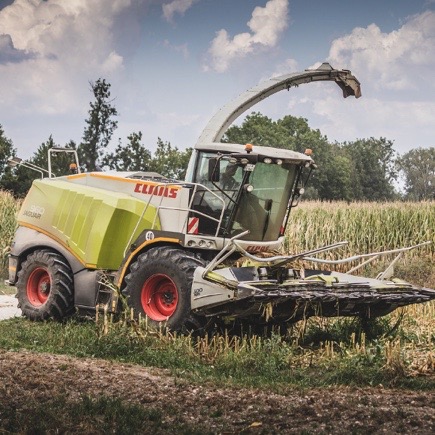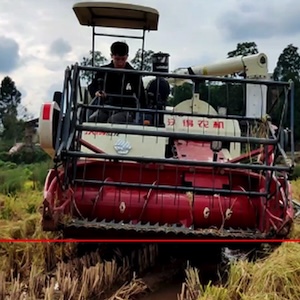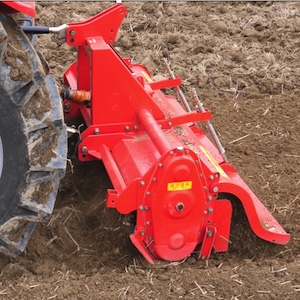Measurement and optimization of non-linear damping systems for agricultural engineering vehicle cab

Published:17 July 2024
Abstract Views: 255
PDF: 180
HTML: 6
HTML: 6
Publisher's note
All claims expressed in this article are solely those of the authors and do not necessarily represent those of their affiliated organizations, or those of the publisher, the editors and the reviewers. Any product that may be evaluated in this article or claim that may be made by its manufacturer is not guaranteed or endorsed by the publisher.
All claims expressed in this article are solely those of the authors and do not necessarily represent those of their affiliated organizations, or those of the publisher, the editors and the reviewers. Any product that may be evaluated in this article or claim that may be made by its manufacturer is not guaranteed or endorsed by the publisher.
Similar Articles
- Andrea De Montis, Amedeo Ganciu, Fabio Recanatesi, Antonio Ledda, Vittorio Serra, Mario Barra, Stefano De Montis, The scientific production of Italian agricultural engineers: a bibliometric network analysis concerning the scientific sector AGR/10 Rural buildings and agro-forestry territory , Journal of Agricultural Engineering: Vol. 48 No. s1 (2017): Special Issue
- Francisco Ayuga, Present and future of the numerical methods in buildings and infrastructures areas of biosystems engineering , Journal of Agricultural Engineering: Vol. 46 No. 1 (2015)
- Marzia Quattrone, Giovanna Tomaselli, Lara Riguccio, Patrizia Russo, Assessment of the territorial suitability for the creation of the greenways networks: Methodological application in the Sicilian landscape context , Journal of Agricultural Engineering: Vol. 48 No. 4 (2017)
- Francesca Valenti, Simona M.C. Porto, Giovanni Cascone, Claudia Arcidiacono, Potential biogas production from agricultural by-products in Sicily. A case study of citrus pulp and olive pomace , Journal of Agricultural Engineering: Vol. 48 No. 4 (2017)
- Adeshina Fadeyibi, Zinash D. Osunde, Evans C. Egwim, Peter A. Idah, Performance evaluation of cassava starch-zinc nanocomposite film for tomatoes packaging , Journal of Agricultural Engineering: Vol. 48 No. 3 (2017)
- Volodymyr Bulgakov, Simone Pascuzzi, Semjons Ivanovs, Volodymyr Kuvachov, Yulia Postol, Francesco Santoro, Viktor Melnyk, Study of the steering of a wide span vehicle controlled by a local positioning system , Journal of Agricultural Engineering: Vol. 52 No. 3 (2021)
- Shadrack Kwadwo Amponsah, Ahmad Addo, Komla Dzisi, Jean Moreira, Sali Atanga Ndindeng, Comparative evaluation of mechanised and manual threshing options for Amankwatia and AGRA rice varieties in Ghana , Journal of Agricultural Engineering: Vol. 48 No. 4 (2017)
- Alessandro D'Emilio, Simona M.C. Porto, Giovanni Cascone, Marco Bella, Marco Gulino, Mitigating heat stress of dairy cows bred in a free-stall barn by sprinkler systems coupled with forced ventilation , Journal of Agricultural Engineering: Vol. 48 No. 4 (2017)
- Silvio Kosutic, Daniele De Wrachien, Report on the 42nd International Symposium: Actual Tasks on Agricultural Engineering, 25-28 February 2014, Opatija, Croatia , Journal of Agricultural Engineering: Vol. 45 No. 1 (2014)
- Maria Elena Menconi, Massimo Chiappini, Jan L.M. Hensen, David Grohmann, Thermal comfort optimisation of vernacular rural buildings: passive solutions to retrofit a typical farmhouse in central Italy , Journal of Agricultural Engineering: Vol. 48 No. 3 (2017)
You may also start an advanced similarity search for this article.

 https://doi.org/10.4081/jae.2024.1592
https://doi.org/10.4081/jae.2024.1592 











